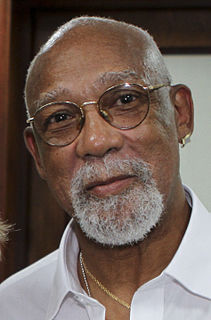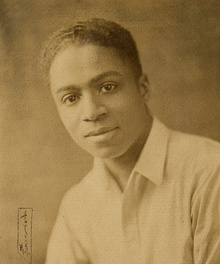A Quote by John Carlos
As a kid growing up and seeing so much strife taking place in society, and particularly on Blacks and people of color, I had an opportunity as a young man to witness the change that was taking place in Harlem, the exodus of white folks leaving Harlem, which I thought was a very cohesive situation. But they felt that they needed to leave.
Related Quotes
I was raised in Harlem. I never found a book that took place in Harlem. I never had a church like mine in a book. I never had people like the people I knew. People who could not find their lives in books and celebrated felt bad about themselves. I needed to write to include the lives of these young people.
I am particularly conscious of my connection to the poets of the Harlem Renaissance because I, too, am a Black poet, born into, and shaped by, the very community in which those poets of the past produced so much of the work we associate with the Harlem Renaissance. We speak from the same place, both literally and metaphorically.
Harlem was a development, a developer's dream and a place where residents had more space and more amenities than ever before. The subway reached 145th street about 1904, and it seemed that Harlem's destiny was to become largely a preserve of successful ethnics relocating and arriving. Then, overnight, the bust took place.
People are too afraid of uptown. A lot of people will tell you, like, "Don't go to Harlem. You can never go there. 'Cause as soon as you get there, they kill you." That's what people think. As soon as you arrive in Harlem, someone just stabs you in the face right away. That's people's image of Harlem: just everyone standing around waiting for lost white people to kill all day. "Did you see any? I didn't either."
I didn't know Harlem existed. I didn't know there was such a place, because I grew up in white Queens, where five miles is 100 miles. So I went to the school and, being a smart cookie - as they called us in those days - I had a million questions. How did this place exist? How come I didn't know about it? Why are people living like this? Do they want to live like this?



































